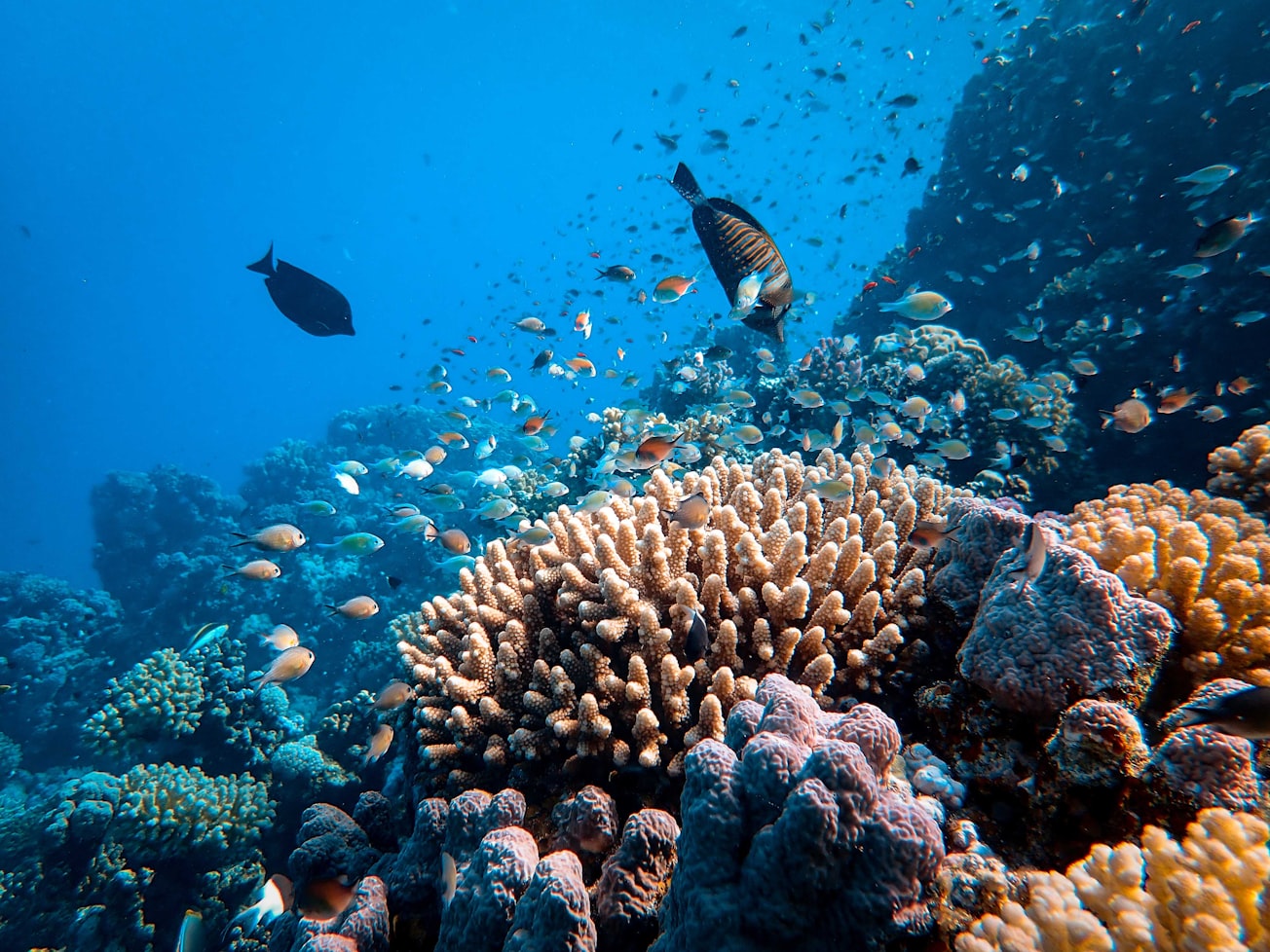What is it about?
Stony corals in parts of the Indo-Pacific can benefit by local interactions with a farming damselfish, the Dusky Gregory, that can result in enhanced recruitment, growth, and survival of coral colonies. These fish cultivate algal gardens for food, and they vigorously defend these gardens against other fishes. This protection in turn, also provides coral that recruit into the farmerfish gardens an associational defense against coral predators. This protection can enhance coral growth and survival and ultimately can result in a great number and diversity of corals within a garden compared to adjacent areas that are not defended by farmerfish. In Moorea, French Polynesia, we evaluated the response and fate of 399 Pocilloporid coral colonies following a major thermal stress event in 2019 that caused a substantial amount of branching coral to bleach and die. We investigated whether stony coral colonies that occurred within territorial gardens protected by the farmerfish were less susceptible to or survived bleaching better than colonies on adjacent, undefended substrate. We found that the bleaching prevalence (proportion of the sampled colonies affected) and bleaching severity (proportion of a colony’s tissue that bleached) did not differ between colonies within or outside of defended gardens. However, bleached colonies that were followed for one year after the bleaching event revealed that a bleached coral within a garden was less likely to suffer complete colony death and about twice as likely to recover to its pre-bleaching cover of living tissue compared to colonies outside of farmerfish gardens. Our findings indicate that gardens defended by these farmerfish may serve as a thermal stress oasis for branching coral that enhances their chances of buffering marine heat waves.
Featured Image

Photo by Francesco Ungaro on Unsplash
Why is it important?
Marine heat wave events that induce mass coral bleaching will continue to occur more frequently and with greater intensity as ocean temperatures continue to warm. It is important to understand how these disturbances will alter coral reef ecosystems since stony corals are highly susceptible to mortality from thermally-induced mass bleaching events. Our results highlight possible mechanisms that may help with maintaining the resilience of branching corals following these temperature-related disturbances. Understanding the factors that influence the ability of stony corals to buffer the effects of marine heat waves is critical for developing management strategies that will enhance the resilience of coral reefs to recurring periods of thermal stress.
Read the Original
This page is a summary of: Farmerfish gardens help buffer stony corals against marine heat waves, PLoS ONE, March 2023, PLOS,
DOI: 10.1371/journal.pone.0282572.
You can read the full text:
Contributors
The following have contributed to this page










